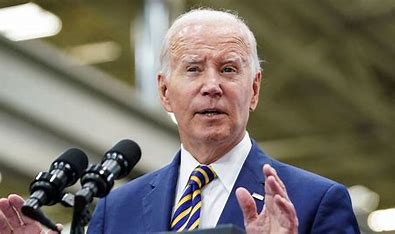President Joe Biden is reportedly considering a significant reform of the United States Supreme Court, a move that could reshape the highest court in the land. This potential shift comes amid growing debates about the court's role, composition, and the increasing polarisation of American politics. In this article, we will explore the context behind Biden's consideration, the possible reforms, the implications of such changes, and the reactions from various stakeholders.
Context Behind Biden's Consideration
Biden's contemplation of Supreme Court reform stems from longstanding concerns about the court's structure and functionality. The current nine-justice system, established in 1869, has faced criticism for its inability to adapt to contemporary political and social dynamics. Biden's consideration also responds to calls from progressive factions within his party, who argue that recent appointments have skewed the court's ideological balance. Furthermore, Biden's reflection on reform aligns with his broader commitment to address institutional challenges and enhance democratic governance.
Possible Reforms Biden Might Consider
There are several potential reforms Biden could consider to address the perceived issues within the Supreme Court. Each reform carries its own set of implications and challenges:
Expanding the Court: One of the most discussed reforms is expanding the number of justices on the Supreme Court. Proponents argue that adding justices could mitigate the court's current ideological tilt and introduce more diverse perspectives. Biden might consider this option to balance the court, although it would undoubtedly face significant political resistance.
Term Limits for Justices: Another reform Biden might explore is imposing term limits on Supreme Court justices. Currently, justices serve lifetime appointments, which can lead to prolonged influence of a single ideology. Term limits could ensure more regular turnover and a dynamic judiciary that reflects evolving societal values.
Judicial Review and Accountability: Biden could also consider reforms aimed at increasing judicial accountability and transparency. This might include mechanisms for reviewing Supreme Court decisions or implementing stricter ethical guidelines for justices. Enhancing accountability could restore public trust in the court's impartiality and integrity.
Rotating Justices: A more radical proposal involves rotating justices from lower federal courts to serve on the Supreme Court for set terms. This would democratise the court's composition and prevent any single justice from holding prolonged sway over pivotal decisions.
Implications of Biden's Potential Reforms
The implications of Biden's potential Supreme Court reforms are profound and multifaceted:
Political Landscape: Any major reform proposed by Biden would undoubtedly alter the political landscape. Expanding the court, for instance, could lead to intense partisan battles and accusations of court-packing. Conversely, implementing term limits might find broader bipartisan support as a measure to modernise the judiciary.
Judicial Independence: Reforms could impact the perceived independence of the judiciary. While increasing accountability is beneficial, it must be balanced to avoid undermining the court's ability to make impartial decisions free from political pressure.
Public Perception: Biden's reforms would also influence public perception of the Supreme Court. Successful reforms that enhance transparency and accountability could restore public confidence, while controversial changes might exacerbate divisions and scepticism.
Legal Precedents: Changes to the court's structure or processes could have lasting effects on legal precedents and the interpretation of constitutional law. Biden would need to consider how reforms might affect the court's role as the final arbiter of legal disputes in the United States.
Reactions to Biden's Consideration of Reforms
Biden's consideration of Supreme Court reforms has elicited a range of reactions from different stakeholders:
Progressive Advocates: Many progressive advocates have welcomed Biden's openness to reform. They argue that the Supreme Court's current composition does not reflect the country's diversity and that reforms are necessary to ensure justice and equality.
Conservative Critics: Conversely, conservative critics have expressed strong opposition to potential reforms. They view proposals like court expansion as politically motivated attempts to dilute the influence of conservative justices and disrupt the court's stability.
Legal Scholars: Legal scholars have provided a mix of opinions on Biden's potential reforms. Some support measures like term limits as sensible updates, while others caution against making hasty changes that could undermine the court's role.
General Public: The general public's response to Biden's consideration of reforms has been mixed. While some citizens support efforts to modernise the judiciary, others are wary of altering a long-standing institution and fear potential politicisation of the court.
Historical Context of Supreme Court Reform
Biden's contemplation of Supreme Court reform is not without historical precedent. Throughout American history, the court's structure and function have evolved in response to political and social changes. For example, the Judiciary Act of 1789 initially established the Supreme Court with six justices. The number fluctuated throughout the 19th century, reflecting the country's expansion and political shifts. Biden's potential reforms are part of this broader historical continuum, demonstrating the adaptability of the judicial system.
Biden's Broader Judicial Strategy
Biden's consideration of Supreme Court reform is also part of a broader judicial strategy aimed at enhancing the federal judiciary's effectiveness and fairness. His administration has prioritised appointing diverse and highly qualified judges to lower federal courts, reflecting a commitment to judicial excellence and representation. These efforts complement potential Supreme Court reforms, aiming to create a judiciary that better serves the American people.
Conclusion
In conclusion, President Biden's contemplation of major Supreme Court reform signifies a pivotal moment in American legal and political history. The potential changes, from expanding the court to implementing term limits, carry significant implications for the judiciary's structure, independence, and public perception. As Biden navigates this complex landscape, the ultimate goal remains clear: to ensure a fair, transparent, and effective judicial system that upholds the principles of justice and democracy.
Call to Action
What are your thoughts on Biden's consideration of Supreme Court reform? Do you believe such changes are necessary, or do you have concerns about their potential impact? Share your views in the comments below and join the conversation on the future of the American judiciary.

No comments:
Post a Comment
Thank you for reading my blog